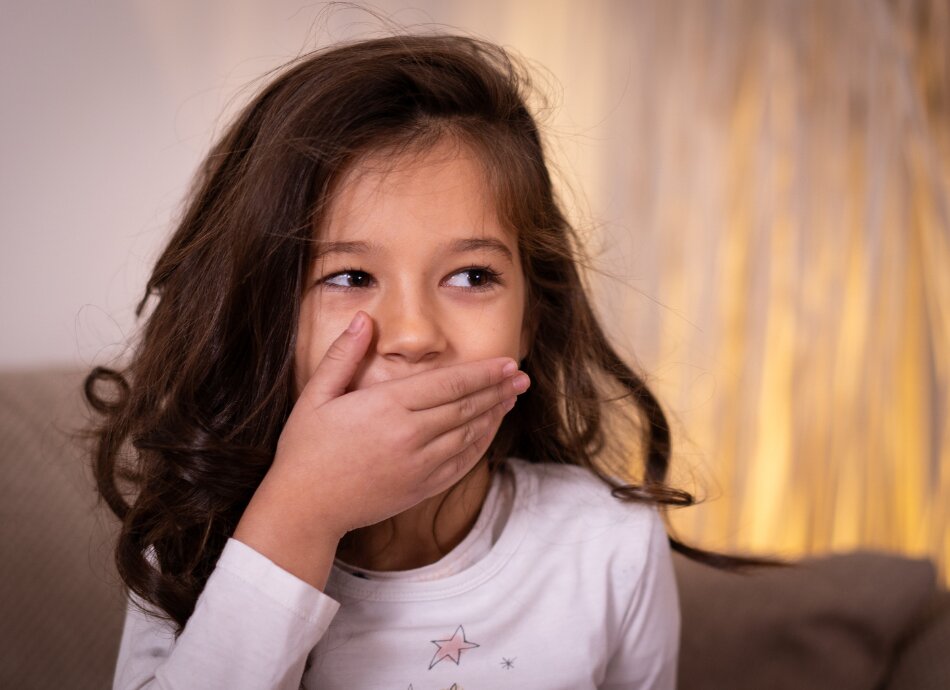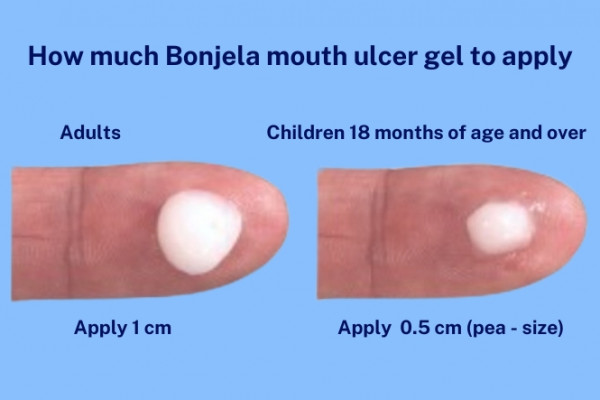You can now add Healthify as a preferred source on Google. Click here to see us when you search Google.
Bonjela®
Key points about Bonjela
- In Aotearoa New Zealand, Bonjela® is available as 2 different products – a teething gel and a mouth ulcer gel.
- Bonjela soothing teething gel can be used in ngā pēpi (babies) 6 months old of age and over.
- Bonjela mouth ulcer gel is safe for adults and tamariki (children) 18 months of age and over.
- Find out how to use Bonjela safely.

In Aotearoa New Zealand, Bonjela® is available as 2 different products – a teething gel and a mouth ulcer gel.
Teething pain: Bonjela soothing teething gel® is suitable for relieving teething pain in babies 6 months of age and over. It’s made with natural ingredients and doesn’t have any choline salicylate in it. Read more about teething.
Mouth ulcers: Bonjela mouth ulcer gel® is suitable for relieving pain from mouth ulcers in adults and tamariki (children) 18 months of age and over. The mouth ulcer gel is applied to the inside the mouth and gently rubbed into the affected area.
Both Bonjela products can be bought over-the-counter at your supermarket or pharmacy.
Bonjela soothing teething gel® may help relieve teething pain in your pēpi (baby). Read more about teething.
You can buy it from supermarkets and pharmacies for use in babies 6 months of age and over
The soothing teething gel doesn't have any choline salicylate, sugar or alcohol in it.
There's little evidence that teething gels are effective and most of the gel is likely to be quickly removed by the tongue and saliva. Ask your healthcare provider about other treatments for teething. These include cold teething rings and gently massaging their gums.
How to use Bonjela soothing teething gel in babies 6 months of age and over
- Wash your hands and apply enough product to your little finger to cover the sore area.
- Gently massage into the gums up to 3 to 5 times a day if needed.
- Using after meals and before sleeping may help stop the gel being removed by saliva.
Bonjela mouth ulcer gel® contains a pain reliever called choline salicylate which is used to help ease pain and discomfort from mouth ulcers. The gel is applied to the inside of the mouth and gently rubbed into the mouth ulcer.
You can buy it from supermarkets and pharmacies for use in adults and tamariki 18 months of age and over.
Precautions before using Bonjela mouth ulcer gel
This product is not recommended for:
- children under 18 months of age unless they've been advised to use it by a healthcare provider
- children under 16 years of age who have, or are recovering from, a chickenpox or influenza infection
- children under 16 years of age who have a fever
- people with stomach ulcer(s)
- people who are breastfeeding
- people in their third trimester of pregnancy.
How to use Bonjela mouth ulcer gel
- Using a clean tissue, dab the surface of the mouth ulcer so it’s free of mucus.
- Wash your hands and cover the tip of your index finger (a pea-sized amount or 1 cm) with the mouth ulcer gel and rub gently into the affected area. For tamariki use 5 mm (half a cm) of gel or less.
- If needed, you can repeat this every 3 hours but don’t use it more often than this.
- Don't use it more than 6 times in 24 hours.
- You can harm your tamariki by applying too much gel or using it too often.
- Don’t apply Bonjela mouth ulcer gel directly to dentures or mouth plates. Remove your dentures before applying the mouth ulcer gel and wait at least 30 minutes before putting your dentures back in.

Why is using Bonjela mouth ulcer gel a concern in babies and young children?
The active ingredient in Bonjela mouth ulcer gel is choline salicylate, which can be very harmful to babies and young children if too much is given. It can cause salicylate poisoning. When using Bonjela mouth ulcer in young children, it's important to follow instructions and make sure you don't use too much, or use it too often.
What are the signs of salicylate poisoning/Bonjela mouth ulcer gel overdose?
The symptoms of overdose are vomiting (being sick), unusual sleepiness, fever and rapid breathing. If you're worried about your child or you think you’ve given too much, you can:
They will tell you what to do. If you have to go to hospital, take the tube of medicine with you. This will give the hospital good information about the medicine and how much has been taken. |
Resources
Choline salicylate(external link) New Zealand Formulary Patient Information
References
- Choline salicylate(external link) New Zealand Formulary
- Choline salicylate(external link) New Zealand Formulary for children
- Reclassification of choline salicylate(external link) Medsafe, NZ, 2022
- Topical oral choline salicylate gels – safety in children(external link) Medsafe, NZ, 2009
Brochures

Medicines and side effects
Healthify He Puna Waiora, NZ, 2024

Health Quality and Safety Commission, NZ, 2019 English, te reo Māori
Credits: Healthify He Puna Waiora. Healthify is brought to you by Health Navigator Charitable Trust.
Reviewed by: Angela Lambie, Pharmacist, Auckland.
Last reviewed:





